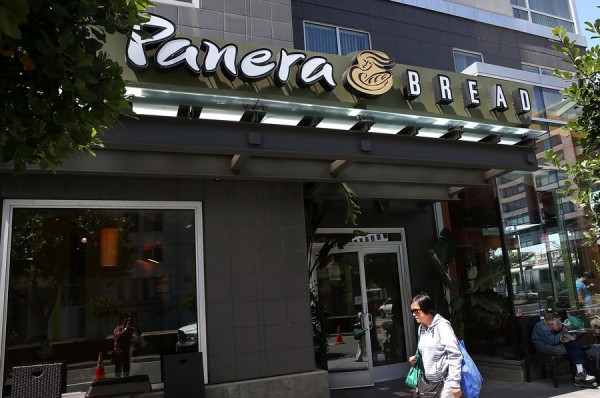
When Panera Bread founder and CEO Ron Shaich considers the foods featured on the bakery-cafe’s menu, he pictures serving them to his 11-year-old daughter and 16-year-old son.
“My kids are eating Panera 10 to 11 times a week,” Shaich tells Fortune. “I don’t want to serve them junk.”
That explains why Shaich has been on a personal, decades-long mission to bring healthier and “clean” ingredients into Panera’s chain restaurants while also advocating better transparency about that ongoing process. More than a decade ago, Panera began to use chicken raised without the use of antibiotics, a move that later expanded to all of the proteins it serves. The company also drew lines in the sand on trans fats, listed calorie information on all menus and, more recently, began to remove artificial additives.
That latter effort is still an ongoing process. Panera claims it is the first U.S. national restaurant company to publicly share a comprehensive list of ingredients that have been removed from its menu (or will never appear on future items). That list includes unusual-sounding Disodium Guanylate and Azodicarbonamide (which aren’t in Panera’s food today), as well as Polydextrose and Titanium Dioxide (both of which are being removed from the menu).
In total, about 168 of Panera’s roughly 460 ingredients need to be reformulated to fit Panera’s new standards.
“We are basically cleaning out our pantry,” said Sara Burnett, senior quality assurance manager at Panera.
Within the so called “fast-casual” restaurant space, a category led by Panera and burrito chain Chipotle , the message is often just as important as the menu. Those chains focus on using the “cleanest” ingredients possible — even if those moves require sacrificed profits in the short term. A carnitas shortage, for example, has caused problems at Chipotle for months. But executives defend the practice by arguing diners, in particular Millennials, are rewarding restaurants that make good on promises to serve better food with fresher ingredients.
The movement is changing not only the restaurant sector, but also the aisles throughout the nation’s grocery stores as consumers migrate to the perimeter of those stores where fresh fruits and vegetables, meats and dairy are stocked. Conversely, sales of processed foods found in the middle of those stores have faced real headwinds. Even suppliers are feeling the pressure. Tyson Foods , for example, last week announced it would ban human antibiotics in its poultry products.
“Consumers are looking for alternatives that are less processed,” Shaich said. He admits that while he doesn’t anticipate that customers will read every chemical on Panera’s published “No-No” list, they can rest assured that those ingredients won’t be found in Panera.
“I would argue ‘clean’ tastes better, as well as it is better for you,” he added.
For complete article on Fortune.com, click here.